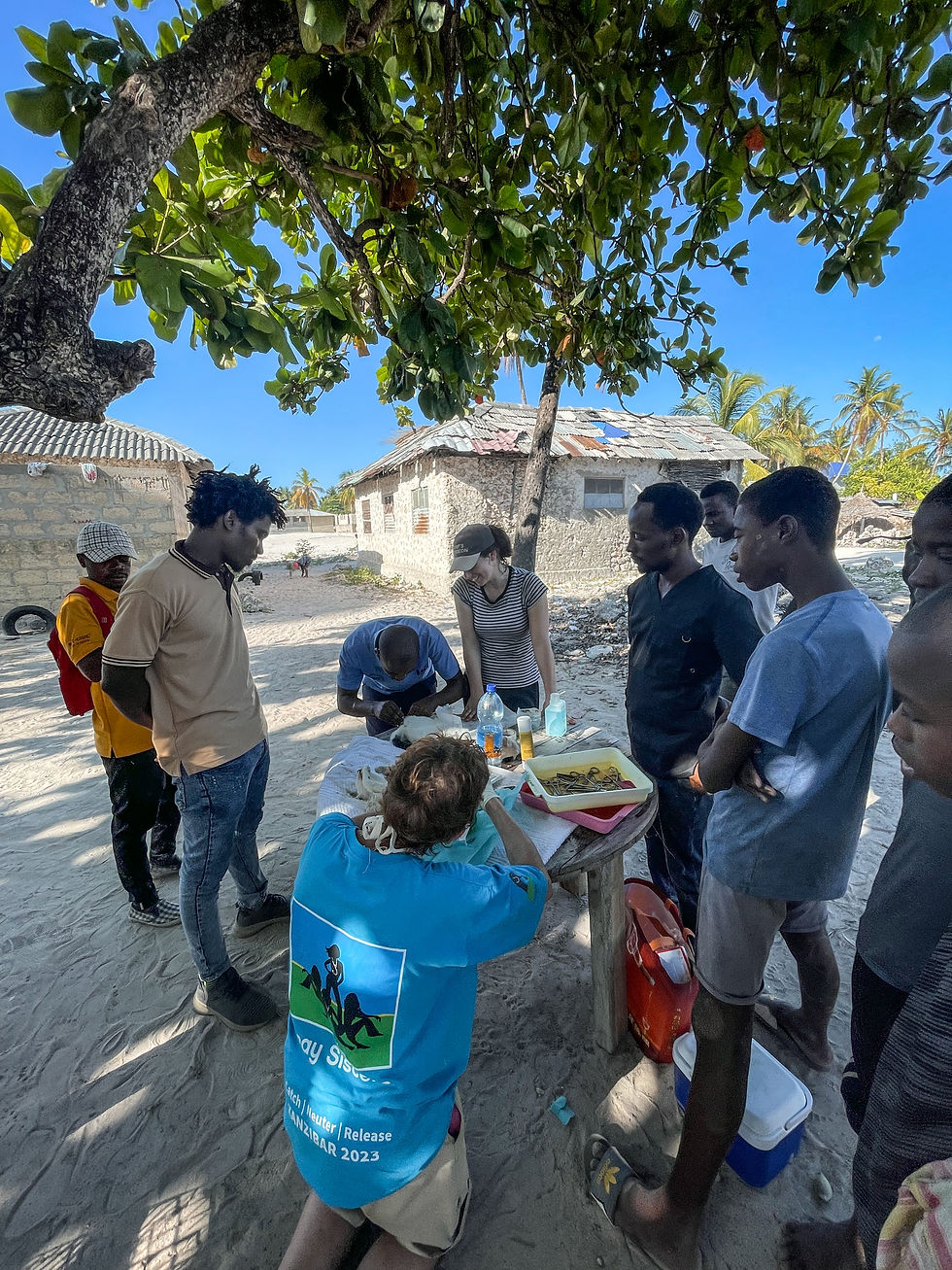Why Working in a Developing Country Will Make You a Better Vet
- Gemma Campling

- Nov 20, 2025
- 3 min read
Setting off on a veterinary placement abroad is more than just an adventure! It’s one of the most significant steps you can take to grow as a clinician, communicator, and compassionate person. Working in a developing country offers experiences that challenge your skills, broaden your understanding of animal care, and shape you into a more capable and confident vet.
Real-World Challenges Build Clinical Confidence
In many developing countries, resources are limited, cases are diverse, and every day brings something totally unexpected. You may be helping to diagnose livestock diseases without advanced lab equipment, treating wildlife with minimal medications, or performing field anesthesia in rugged conditions. These situations push you to rely on your fundamental knowledge, critical thinking, and creativity.

Veterinary students often say that these experiences boost their confidence exponentially. After facing complex cases with limited tools, returning home to a well-equipped clinic feels easy by comparison. The ability to stay calm and decisive under pressure, skills certainly honed in these environments, sets you apart as a clinician who thrives in just about any setting.
Adaptability and Resourcefulness in Low-Resource Environments

In the field, “making do” becomes second nature. Without access to the latest technology or specialized supplies, you learn to improvise while still maintaining high standards of care. This adaptability is invaluable in any veterinary career path, whether you’re in emergency practice, rural medicine, or international wildlife work.
You also gain insight into the global disparities in veterinary resources and animal health infrastructure. Understanding these challenges helps you approach your future work with empathy, innovation, and a problem-solving mindset.
Cultural Humility and Communication with Local Communities

Working alongside local vets, farmers, and community members fosters cultural humility and global awareness. You learn to listen first, respect local knowledge, and collaborate rather than impose. In many regions, veterinary care is closely tied to livelihoods, food security, and cultural practices. Understanding this context deepens your appreciation of what “animal welfare” truly means.
Students frequently describe how these interactions transform the way they communicate. Not just across languages and cultures, but also with clients and colleagues back home. By learning to explain complex concepts simply and respectfully, you become a better advocate for both animals and people.
Career Impact and Future Employability

Employers value graduates who demonstrate initiative, resilience, and a global perspective. A placement in a developing country highlights all three. It signals that you can adapt to challenges, think independently, and work effectively in diverse teams. These traits are essential to be considered for leadership roles and postgraduate opportunities.
Many vets who begin their journeys abroad go on to careers in wildlife conservation, public health, and international development. Even those returning to small animal practice find their experiences enhance their clinical judgment, empathy, and professional edge. Some even say international veterinary work helped them find their spark again.
Student Stories of Transformation and Growth

Countless students share stories of how their time abroad shaped their careers. From performing emergency surgeries in remote villages to assisting with wildlife rescues, these experiences redefine what it means to be a vet. They return home with renewed purpose, sharper skills, and a deeper connection to their profession.
Ready to take your next step?
Explore our volunteer opportunities at Worldwide Vets and gain the global veterinary experience that will shape your vet career growth. Challenge yourself, make an impact, and discover how working in developing countries can make you the vet you aspire to be.





Navigating unpredictable field conditions feels a bit like playing an old-school Snake Game—every move counts, you learn to react quickly, and you grow more confident with each challenge you overcome.
I used Block Blast to distract myself while waiting for my takeout order number to be called. They said my number three times before I even noticed.